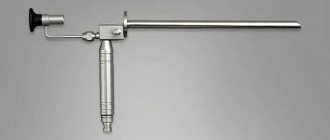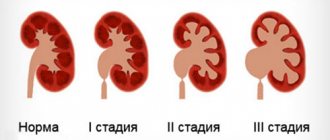Urethritis is an inflammation of the urethra (urethra). Urethritis can be acute or chronic.
Most often, urethritis is detected in men. In women, the urethra is shorter, so the infection rises through it faster. Therefore, when an infection enters the urethra, women usually immediately develop cystitis (inflammation of the bladder). Inflammation of the urethra (urethritis itself) without involvement of the bladder in the inflammatory process is rare.
Prices for services
Initial appointment with a urologist FOR MEN + ultrasound of the prostate gland (assessment of complaints, medical history, if necessary, rectal digital examination, ultrasound of the prostate gland in men)
Primary appointment – visiting a doctor of a specific specialty for the first time. Includes a conversation with the patient, an initial examination, anamnesis, if necessary, a digital rectal examination, and an ultrasound of the prostate gland. The price is valid from 02/01/2021 The price is not valid for appointments at the branches of Bolshevikov Ave. and Prosveshcheniya Ave. Make an appointment
550 ₽
Initial appointment with manager Department of Urology Rylchikov I.V. + Ultrasound (includes a conversation with the patient, initial examination, medical history, if necessary, rectal digital examination, ultrasound of the prostate gland)
Primary appointment – visiting a doctor of a specific specialty for the first time. Make an appointment
1200 ₽
Repeated appointment with the urologist
Make an appointment
700 ₽
In men, due to the anatomical features of the structure of the urethra, urethritis manifests itself earlier and more painfully; sticking and inflammation of the sponges of the external opening of the urethra may be added to the above symptoms. A woman suffering from urethritis may not feel any symptoms at all, so the disease may go unnoticed and become chronic.
Urethritis and its varieties
There are primary (non-infectious) and secondary (infectious) urethritis. With primary urethritis, the inflammatory process begins directly from the urethra. The disease most often occurs when infected during sexual intercourse or injury. With secondary urethritis, the infection spreads to the urethra from an organ already affected by inflammation, for example, from the prostate, bladder, seminal vesicles and other organs. Secondary urethritis is a consequence of an existing disease.
Urethritis can also take a chronic course if the symptoms of the disease were not paid attention to, if the urethritis was not treated well enough, or if the patient’s immunity was reduced during treatment. In such cases, pronounced symptoms of the disease, such as itching and pain when urinating, disappear, but the disease itself remains and gradually completes its destructive work. In this case, men will sacrifice their prostate gland and seminal vesicles to the disease, and women will sacrifice the Bartholin glands and small glands of the vestibule. But that is not all! At the first opportunity (hypothermia, decreased immunity, alcohol abuse), urethritis will bite into the genitourinary system with renewed vigor. And then chronic prostatitis, urethral strictures, vesiculitis, epididymitis and... infertility are possible.
IMPORTANT!
Sometimes urethritis is so sluggish and asymptomatic that the patient himself does not know about his illness. Unfortunately, you can get infected from such a person.
Symptoms of urethritis
The insidiousness of the disease lies in the fact that the usual general inflammatory manifestations (fever, weakness, malaise) are most often not observed with urethritis. The disease urethritis can generally occur without pronounced symptoms. In this case, one of the partners may suffer the disease much more severely. Urethritis can make itself felt even after a considerable time after infection - from several hours to several months with nonspecific infectious urethritis.
The main symptoms of urethritis may be as follows:
- pain and burning when urinating (in women they are localized mainly at the end of the urethra (outside), in men - along the entire length of the urethra);
- copious mucopurulent discharge from the urethra (mainly in the morning) with a sharp, specific odor;
- frequent urge (with an interval of 15-20 minutes) to urinate;
- incomplete emptying of the bladder;
- urinary disorders;
- cloudy urine, drops of blood may appear in it at the end of urination;
- change in the external opening of the urethra in color and shape;
- irritation of the glans penis and foreskin in men;
- pain during erection in men;
- high content of leukocytes in a general urine test.
What are the dangers of untreated urethritis? If left untreated, acute urethritis can develop into a chronic form, which is characterized by regular exacerbations and requires longer and more complex treatment. Male urethritis also threatens chronic prostatitis, vesiculitis, epididymitis, as well as the development of infertility in the future.
More about the reasons
As mentioned above, primary or non-infectious urethritis develops in the urethra itself. Non-infectious urethritis can be caused by trauma to the urethra, for example due to cystoscopy, bladder catheterization or passage of a stone. Also, the cause of non-infectious urethritis may be a narrowing of the urethra, congestion in the pelvic area or an allergic reaction. Moreover, non-infectious urethritis can also turn into an infectious form, as soon as opportunistic microorganisms penetrate the inflamed urethra. In this case, primary nonspecific urethritis quickly turns into secondary nonspecific infectious urethritis.
Infectious or secondary urethritis is caused by the notorious hidden infections. Their causative agents, which are now increasingly called the plague of the twentieth century, are chlamydia, trichomonas, gonococci, mycoplasma, ureaplasma, gardnerella, etc. In addition, the causative agents of urethritis are staphylococcus, E. coli and streptococcus.
Another cause of the disease is infection from a person with urethritis during unprotected sexual intercourse. And at the same time you can acquire an infectious disease, sometimes more than one.
Make an appointment
1.General information
The urethra is the lower, last canal of the urinary tract, and the suffix “-itis”, according to generally accepted rules of word formation in medicine, clearly indicates inflammation of this canal. Thus, the nosological term “urethritis” unites a whole group of diseases, sometimes essentially unrelated to anything other than the presence of an inflammatory process in the urethral mucosa. The collective nature of the diagnosis, as well as the widespread prevalence of the phenomenon itself, serve as a source of certain diagnostic, classification, and statistical discrepancies, but the problem itself remains one of the most relevant for several medical specialties: primarily for dermatovenerology, urology, andrology and gynecology.
According to the etiological criterion, infectious and non-infectious urethritis are distinguished; by type of course - acute, torpid (sluggish, inactive) and chronic; by genesis – into primary (initially urethral) and secondary (developing against the background of other diseases or lesions). In addition, the too large and heterogeneous group of infectious inflammations of the urethra is usually divided into specific (which includes inflammation caused by tuberculous mycobacteria, gonococci and Trichomonas) and nonspecific (caused by all other pathogenic pathogens and their combinations, which also forms an extremely large and varied subgroup) .
There are currently no sufficiently reliable and accurate medical and statistical data on the incidence of urethritis, despite their obvious high frequency in clinical practice. With regard to infectious urethritis, there is also no data on the frequency of different routes of infection; This is partly explained by the delicacy of localization and the reluctance (or inability) of patients to recall all potentially dangerous situations in their memory, and partly by the objective impossibility of tracking all possible methods of infection, especially with a combined infection. However, most experts with confidence and sufficient grounds put sexual transmission of urethral infections in first place, followed by non-compliance with basic hygiene and sanitary rules. In general, the situation is further complicated by the fact that the urethra is an extremely “convenient” channel for the spread of both ascending and descending (from higher-lying foci, for example, with nephritis or cystitis) infections: the internal mucous coating of the urinary canal is surrounded by an extensive network of blood vessels and nerve endings, it is constantly tested during the evacuation from the body of all kinds of waste and harmful substances with urine and, finally, is an ideal “springboard” for the introduction and spread of infectious pathogens during unprotected sexual contact.
A must read! Help with treatment and hospitalization!
Diagnostics
In diagnosing urethritis, the main thing is to identify its cause. That is, to find which pathogen caused the disease. For this, traditional laboratory tests are sufficient - smear, culture and PCR diagnostics. When the pathogen is found, its sensitivity to various groups of antibiotics can be accurately determined. After this, the doctor may need to perform an ultrasound examination of the pelvic organs. This is necessary in order to exclude the possibility of inflammation of other organs, in men - the prostate gland and seminal vesicles, in women - the bladder. Now the doctor can make a final diagnosis and prescribe the correct treatment.
Diagnosis and treatment of nonspecific inflammation of the urethra
If symptoms of urethritis appear, it is best to consult a personal doctor, a urologist in the case of men, a gynecologist in the case of women. For men, the doctor takes a smear from the urethra; for women, a smear is taken from the urethra, vagina, and cervix. Women are not tested during menstruation.
It is advisable to perform a urine culture (the first morning urine is taken for analysis). The doctor may recommend testing for other sexually transmitted infections - syphilis, HIV, hepatitis B and C.
Differential diagnosis: Gram smear examination, with nonspecific urethritis the result is negative (gonococcal - positive), identification of pathogens using PCR and NASBA. NASBA is a molecular biological modern, most accurate diagnostic method, which is based on the analysis of RNA molecules.
Treatment of nonspecific urethritis consists of antibiotic therapy for at least 10 days. The following are used: doxycycline (Unidox Solutab) 100 mg 2 times a day, azithromycin 1000 mg once (for uncomplicated forms), cefixime (Suprax) 400 mg once a day for 6 days. It is recommended to include metronidazole 500 mg 2 times a day for 7 days (or 2000 mg once), especially for urethritis caused by Trichomonas.
Antibacterial therapy
During treatment, sexual intercourse should be avoided. This prevents the spread of the disease. The partner of a sick person should also consult a doctor to rule out or confirm an infection, and also prescribe treatment if the result is positive. Diagnosis and treatment of both partners is necessary to prevent relapses of urethritis. This especially applies to women, since in more than half of the cases they have an asymptomatic course of the disease.
You should also avoid unprotected sex or contact with multiple partners.
Treatment
The unpleasant symptoms of urethritis - discharge, burning, pain and itching when urinating - are not at all difficult to eliminate. To do this, you will need a course of rinsing the urethra with medicinal solutions. It is much more difficult to permanently get rid of the cause of infectious urethritis, that is, to cure chlamydia, trichomoniasis, gonorrhea, candidiasis and other hidden infections. If this is not done or treatment is carried out independently, then the evil sores will only adapt to the environment of the body at the cellular level and will continue to undermine it. In addition to antibiotic therapy, it is important to supplement the treatment of urethritis with immunostimulating drugs that restore normal microflora in the urethra, increase immunity and enhance the effectiveness of antibacterial therapy.
When the course of treatment is completed and the symptoms of urethritis stop, repeat tests will be needed. This is necessary to make sure that the infection is completely destroyed.
Do not be sick
The most important guarantee of sexual health can be considered a protected intimate life. Infections will not pass through a condom, and in the future it will save you from the need to treat sexually transmitted diseases and, ultimately, from infertility and impotence.
Health is the quality of your life. Specialists from the Altermed group of clinics will help restore and support it.
Other articles by the author
- Epididymitis
- Urethritis
- Frequent urination in men and women
- erectile disfunction
- Trichomoniasis in men
- Chlamydia in men and women
- Ureaplasmosis









